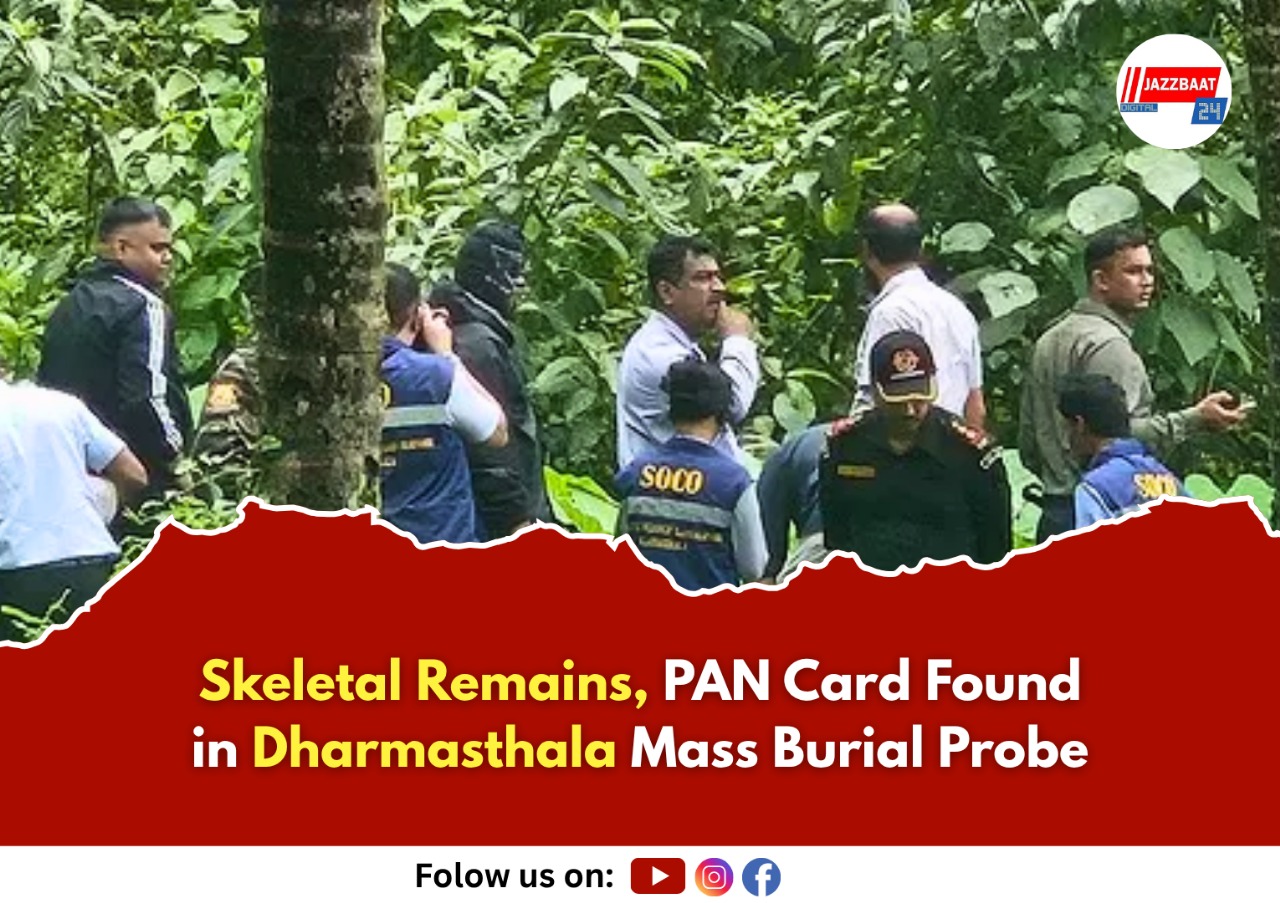
DHARMASTHALA:
The Special Investigation Team (SIT), probing allegations of mass burials in Karnataka’s Dharmasthala, on Thursday unearthed partial human remains from the sixth suspected burial site. This discovery marks the third consecutive day of exhumation operations in the forested region near the Netravathi river.
Officials confirmed that 15 bones, some of them broken, were recovered from a shallow pit in a remote forested zone. No skull was found. A forensic doctor present during the dig provided a preliminary assessment, stating that the remains likely belonged to a male individual. However, a full forensic analysis will be required to confirm identity, age, and cause of death.
This exhumation is part of an ongoing investigation triggered by a complaint filed by a 50-year-old man who claims he was coerced into burying around 100 bodies, mostly those of women and minors, over several years in Dharmasthala. The complainant had identified 13 sites believed to contain human remains. Thursday’s recovery is from the sixth site being investigated by the SIT.
On Tuesday, during the first day of the operation, officials found a PAN card and a debit card along with skeletal remains at one of the burial sites. The PAN card was later traced to Suresh, a resident of Nelamangala in Bengaluru Rural district, who reportedly died of jaundice in March 2025 and was cremated in his native village.
“The deceased was an alcoholic,” an SIT official said, suggesting that Suresh may have lost the card during a previous visit to Dharmasthala. The items have been sent for forensic examination and authentication, although officials do not believe his death is directly connected to the remains found at the site.
A senior SIT officer said, “We are proceeding methodically and carefully. Each site is being examined in the presence of forensic experts. We have also documented every stage of the excavation with photographic and video evidence.”
The SIT was formed following the filing of the First Information Report (FIR) based on the complainant’s detailed account of how he was allegedly forced to bury bodies. His testimony is currently under review, and officials are attempting to corroborate his claims with physical evidence.
Local sources said that the forested areas around Dharmasthala, particularly near the river, are difficult to access and have long been considered secluded. This, officials believe, might have made them potential sites for illegal disposal of bodies.
The Karnataka government has instructed the SIT to proceed with transparency and maintain regular communication with forensic laboratories for speedy examination of the remains. A report from the forensic team is expected to be crucial in establishing the veracity of the complainant’s allegations.
So far, no arrests have been made in the case. Police say the investigation is in its early stages and is being handled with caution due to the sensitive nature of the allegations and the prominence of the town, which is a well known religious and cultural centre in the state.
The SIT will continue excavations at the remaining burial sites in the coming days.